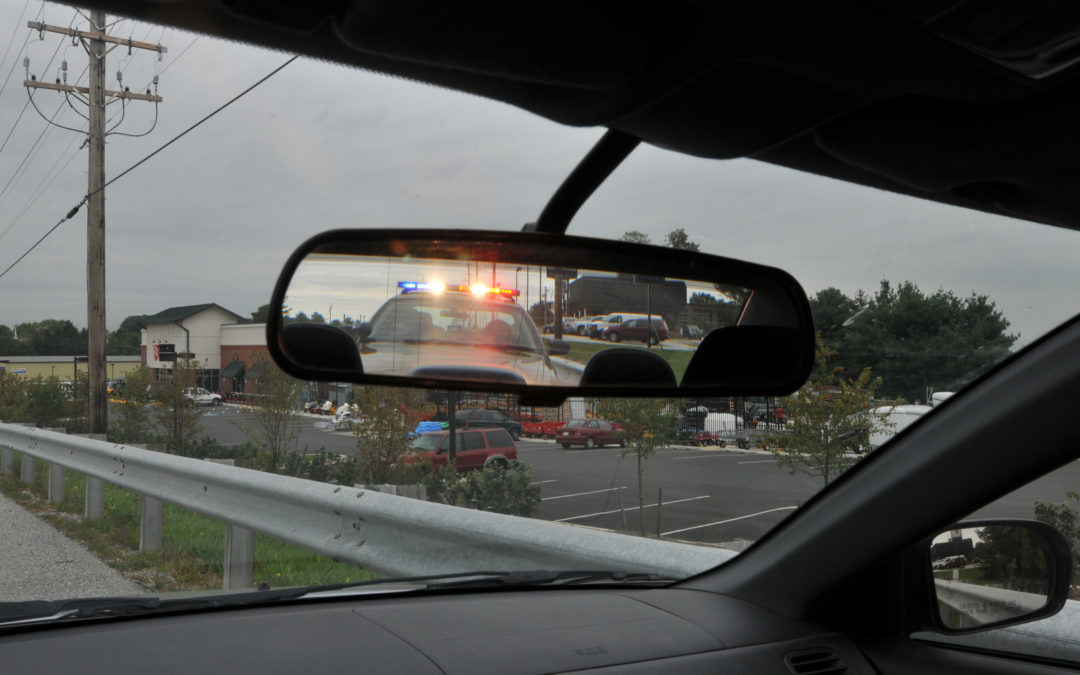Flashing blue lights in your rearview mirror can be an intimidating sight. You might ask yourself what you did to be stopped by a police officer or what the officer might ask when talking to you. One thing that you don’t have to let the officer do is search your car. In most situations, an officer won’t do this anyway unless there is probable cause. If you’re put in this situation, there are a few things that you can do to protect your rights. In the event that you feel forced to let the officer search your car, you should contact an attorney who can look at the police report and the evidence discovered to put together a proper defense.
If there is no probable cause to search your car, then you can deny entry into your vehicle. If the officer continues to ask to search your car, you can ask that another officer come to the scene. An attorney can answer questions that you might have as well if you can contact one while you’re waiting. In most situations, a warrant is needed to search your vehicle because it’s personal property unless there is something clearly in view that raises the suspicion that something else is in the car. If you’re acting in a manner that could indicate that something is in the car, then it could give the officer probable cause for a search as well.
Some of the things that could give an officer probably cause to search your vehicle would be drugs that are in plain view or the end of a gun or another weapon that is clearly seen. Smells coming from your car that would indicate illegal activity can also be enough to allow an officer to search your vehicle. If you admit that you have done something illegal or that you have something in the vehicle, then that would give an officer the right to complete a search as well.
Even if you understand the concept of probable cause, it likely won’t be enough to completely prevent a search of your vehicle. An officer might try to use language that would make you believe that there is something seen in the car or that there is another legal reason for a search. Try to stay as calm as possible as any anxiety or agitation could lead to questions by the officer. Don’t say a word as any details that you provide could be held against you at a later time. If you’re asked to get out of the car, do as you’re told. However, you can tell the officer that you do not allow a search of the vehicle because you’re cooperating. If you’re not in handcuffs or in the back of a police car, you can end the stop after receiving a ticket or citation and be on your way.
If there is no probable cause to search your car, then you can deny entry into your vehicle. If the officer continues to ask to search your car, you can ask that another officer come to the scene. An attorney can answer questions that you might have as well if you can contact one while you’re waiting. In most situations, a warrant is needed to search your vehicle because it’s personal property unless there is something clearly in view that raises the suspicion that something else is in the car. If you’re acting in a manner that could indicate that something is in the car, then it could give the officer probable cause for a search as well.
Some of the things that could give an officer probably cause to search your vehicle would be drugs that are in plain view or the end of a gun or another weapon that is clearly seen. Smells coming from your car that would indicate illegal activity can also be enough to allow an officer to search your vehicle. If you admit that you have done something illegal or that you have something in the vehicle, then that would give an officer the right to complete a search as well.
Even if you understand the concept of probable cause, it likely won’t be enough to completely prevent a search of your vehicle. An officer might try to use language that would make you believe that there is something seen in the car or that there is another legal reason for a search. Try to stay as calm as possible as any anxiety or agitation could lead to questions by the officer. Don’t say a word as any details that you provide could be held against you at a later time. If you’re asked to get out of the car, do as you’re told. However, you can tell the officer that you do not allow a search of the vehicle because you’re cooperating. If you’re not in handcuffs or in the back of a police car, you can end the stop after receiving a ticket or citation and be on your way.

Roy J. Kahn, with years of legal experience in a wide variety of criminal law, heads a “boutique” firm, which means that your attorney is Roy J. Kahn, not a paralegal. If you have been charged or are about to be charged with a crime—or if you have been contacted to be a witness in a federal grand jury case, you need a qualified defense. You should consult with an attorney immediately and know that you have a right to make no statement until you have consulted with an attorney To contact Mr. Kahn, he can be reached at 305-358-7400.


Recent Comments